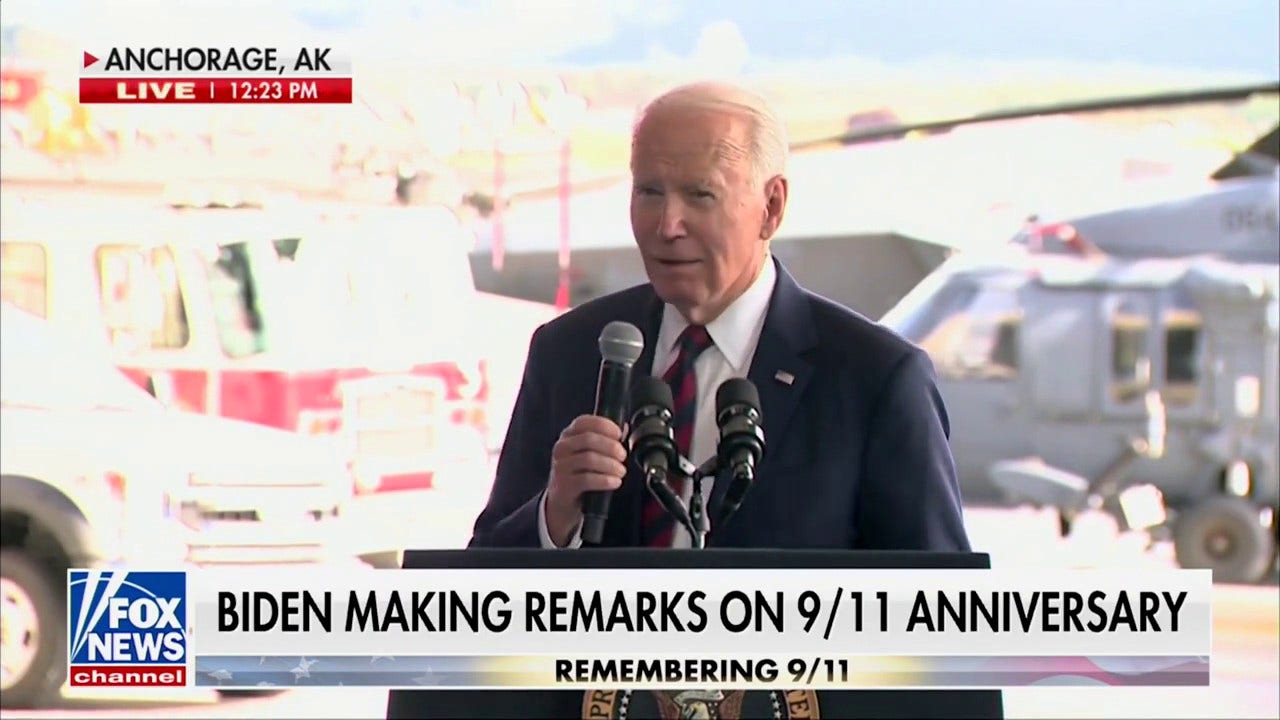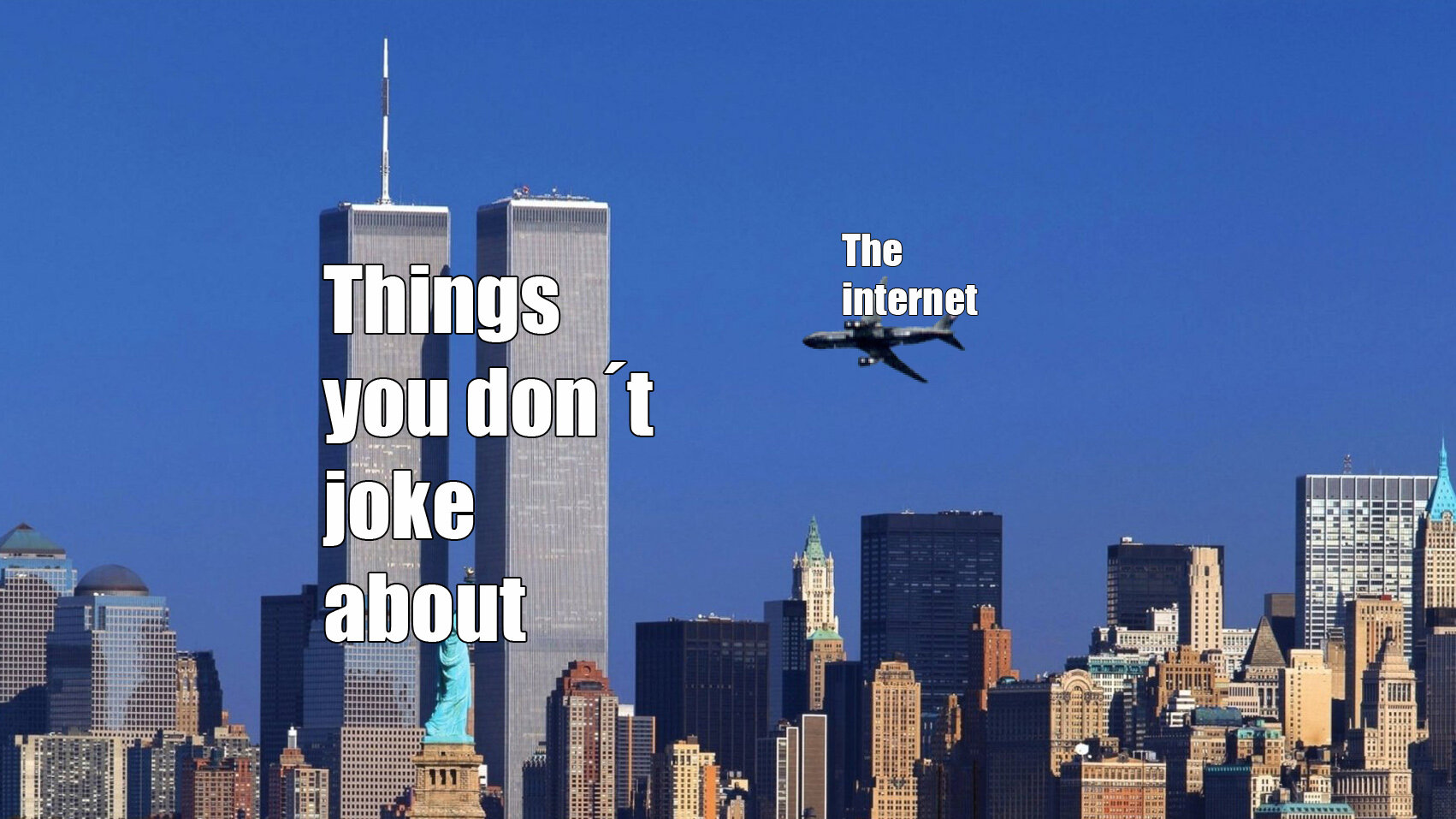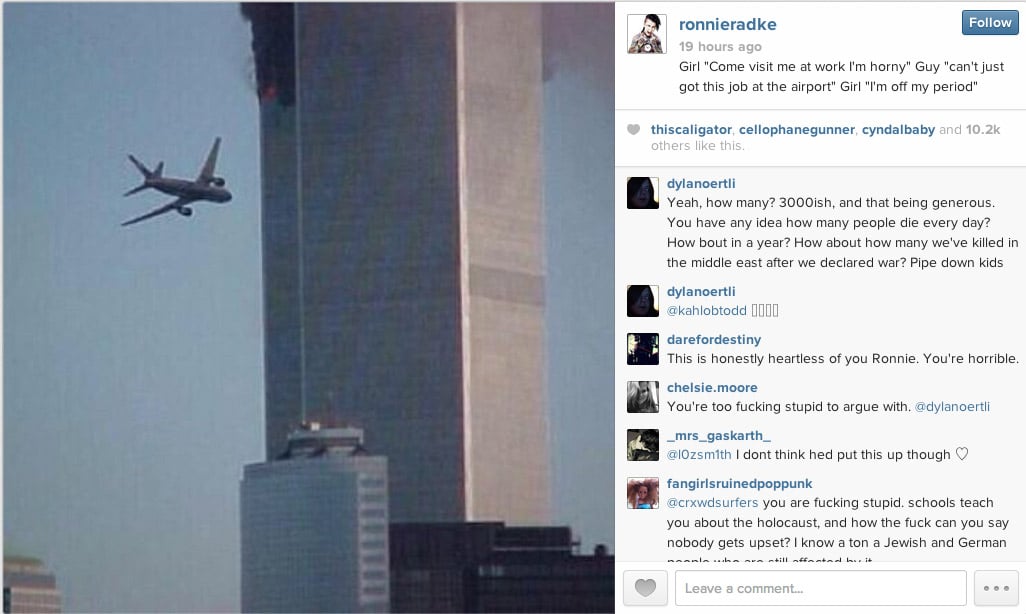Is anything truly off-limits? The evolution of humor has taken a startling turn, transforming even the most solemn events into fodder for jokes and memes, and the attacks of September 11th, 2001, are no exception. What was once a day of collective mourning, where comedians like Gilbert Gottfried and Bill Maher faced severe backlash for attempting to find humor, has now become a topic rife with Gen Z memes and dark humor. This shift raises profound questions about societal boundaries, the nature of grief, and the ever-evolving landscape of comedy in the digital age.
As a recent Rolling Stone article highlighted, navigating social media in 2024 means being constantly exposed to jokes and memes about 9/11. This phenomenon, once unthinkable, now permeates online platforms, prompting discussions about the appropriateness and ethical considerations surrounding humor that touches upon national tragedies. The transformation is a stark reminder of how quickly cultural norms can shift and how the internet can reshape our collective memory and understanding of significant historical events.
While this article primarily discusses the phenomenon of 9/11 jokes, it's important to acknowledge that the central topic is an event, not a person. Therefore, a biographical table is not directly applicable. However, we can provide information about the context surrounding the emergence of this type of humor.
| Category | Information |
|---|---|
| Historical Context | The September 11, 2001 attacks were a series of four coordinated terrorist attacks by the Islamic terrorist group al-Qaeda against the United States on the morning of Tuesday, September 11, 2001. The attacks resulted in 2,977 fatalities, over 25,000 injuries, and substantial long-term health consequences, in addition to at least $10 billion in infrastructure and property damage. |
| Cultural Impact | The attacks had a profound and lasting impact on American society, leading to increased security measures, the War on Terror, and significant shifts in political discourse. The attacks also influenced art, literature, and entertainment, with many works reflecting the grief, trauma, and resilience of the American people. |
| Humor as a Coping Mechanism | Humor can serve as a coping mechanism in the face of tragedy, allowing individuals to process difficult emotions and find moments of levity in dark times. However, the use of humor in relation to 9/11 remains highly controversial, with some viewing it as insensitive and disrespectful to the victims and their families. |
| Evolution of 9/11 Humor | Early attempts at 9/11 humor often faced strong backlash, with comedians like Gilbert Gottfried and Bill Maher experiencing negative consequences for their jokes. However, over time, 9/11 humor has become more prevalent, particularly among younger generations who may not have direct memories of the event. This shift reflects changing attitudes towards tragedy and the increasing role of the internet in shaping cultural discourse. |
| Ethical Considerations | The use of 9/11 jokes raises complex ethical questions about the boundaries of humor, the responsibility of comedians, and the impact of jokes on victims and their families. There is no consensus on whether 9/11 jokes are ever appropriate, and opinions vary widely depending on individual perspectives and cultural backgrounds. |
Reference: History.com - 9/11 Attacks
Here's a glimpse into the types of jokes that have emerged, approached with what some might consider "care and creativity." Consider the query: "Why did 9/11 become a math teacher?" The answer: "It knew how to get to the root of problems." Or this: "9/11 said to 12/11, 'Why so sequential?'" And, "Why was 9/11 good at solving mysteries? It always knew when things didn't add up." Finally, "9/11 and 10/11 had a race…You said you'd never forget!"
This last joke taps directly into the phrase "We will never forget," which became a defining sentiment in the aftermath of the September 11, 2001, terrorist attacks. For years, this phrase encapsulated the nation's commitment to remembering the tragedy and honoring the victims. But now, the comedy surrounding 9/11 has become more nuanced, sophisticated even. It addresses not only the attacks themselves but also the international conflicts that have arisen in the decades since.
Kumail Nanjiani’s 9/11 joke in "The Big Sick" offers a prime example of this evolving approach. The humor extends beyond the immediate horror of the event, touching upon the geopolitical landscape it helped shape. This shift suggests that as time passes, our understanding and processing of tragedy become more complex, allowing for a wider range of comedic interpretations.
Another joke poses the question: "What's the difference between 9/11 and a cow?" The answer: "You can't milk a cow for 22 years." This joke, stark in its simplicity, highlights the prolonged impact of the attacks while also acknowledging the potential for exploitation or over-reliance on the tragedy for emotional or political gain. Its brevity underscores the complicated relationship between remembrance, grief, and the passage of time.
However, not all attempts at 9/11 humor have been well-received. Gilbert Gottfried, for instance, faced considerable backlash after making jokes about the attacks and, separately, the Japanese tsunami, ultimately losing his role as the Aflac duck. He later stated that he would not repeat the 9/11 joke for an audience, suggesting an awareness of the sensitivities involved and the potential for causing offense.
"9/11 jokes" are frequently categorized as "brainrot memes," highlighting their often absurd and darkly satirical nature. These jokes explicitly reference the terrorist attacks on September 11, 2001, targeting the World Trade Center in New York City and other locations. The very act of creating humor from such a devastating event can be seen as transgressive, pushing the boundaries of what is considered acceptable in comedic expression.
In an unrelated matter, a post from September 11, 2022, at 4:09 am, reveals a critical stance towards Donald Trump, stating, "I don't like Donald Trump. Don't lie to me [media] and tell me he wants her [Liz Cheney] in front of a firing squad. He's criticizing her for being a war hawk." This comment, while not directly related to 9/11 humor, provides a glimpse into the political climate and the ongoing debates surrounding war and political figures in the aftermath of the attacks.
Meanwhile, social media also showcased photos of Ralph Fiennes during his training for a role, flaunting a significant physique and beard. This seemingly unrelated content serves as a reminder of the diverse range of topics and discussions that coexist online, from political commentary to celebrity updates.
Shifting gears again, Stephanie Ruhle expressed her disapproval of "couch jokes," while others declared their intention to continue making them until Donald Trump is defeated. This exchange highlights the ongoing political tensions and the use of humor as a form of resistance or commentary.
The argument against making such jokes often mirrors the sentiment against the "stop the steal" narrative, suggesting that engaging in such behavior is akin to stooping to a lower level. The idea of "when they go low, we go high" is invoked, but with a "light version," indicating a compromise or adaptation of the principle in the face of political opposition.
Beyond political humor, a separate concern is raised regarding the inadequate handling of medications in prisons. The argument is made that while incarceration is necessary for various reasons, it also entails a responsibility to provide proper nutrition and medical care to inmates, ensuring their basic needs are met.
The discussion then veers back to online commentary, with one user identifying as the "poster you're referencing, r158." This points to the interconnectedness of online communities and the way discussions evolve and reference previous posts or comments.
The impact of controversial content is acknowledged, with the observation that while it may not result in outright bans, it does attract attention and generate discussion. The prevalence of jokes and comments, even those deemed inappropriate, is recognized as a notable phenomenon.
The conversation shifts again to a critique of another user, "R25," who is described as engaging in puerile humor and immature jokes. This highlights the diversity of comedic styles and the subjective nature of humor, with some finding certain types of jokes offensive or unamusing.
The critique extends to Robin, whose laughter is described as forced, and expresses shock at certain behaviors. This reinforces the idea that online discussions are often filled with personal opinions and judgments, reflecting a wide range of perspectives and sensitivities.
A recurring theme throughout these diverse topics is the issue of access and restrictions. The mention of a subscription requirement for certain features underscores the economic realities of online content creation and the limitations that may prevent some users from fully participating.
The topic of humor is further explored through the lens of Mel Brooks's films, specifically his use of gay jokes. These jokes are characterized as crude and outrageous, often blurring the line between acceptance and mockery. The inclusion of such jokes in his movies is noted, raising questions about their intent and impact.
The discussion returns to the central theme of 9/11 jokes, suggesting that "the unfortunate miscalculation of not knowing that Americans of a certain age love a good 9/11 joke." This observation highlights the generational divide in attitudes toward humor and the potential for misjudging the audience's reception of certain types of jokes.
It's clarified that "while the jokes are hardly ever about the atrocities of the actual terrorist attacks themselves, people are able to find levity in one of America’s darkest days." This distinction suggests that the humor often focuses on related themes or aspects of the aftermath, rather than directly making light of the suffering and loss.
Ultimately, "9/11 jokes are forms of humor that reference or revolve around the tragic events of September 11, 2001." They "can range from darkly satirical to absurd, often crossing boundaries that many deem inappropriate." This definition underscores the controversial nature of this type of humor and the ongoing debate about its acceptability.
The repetition of the statement "To be on social media in 2024 is to be swimming in jokes and memes about 9/11" reinforces the pervasiveness of this phenomenon and its increasing visibility in online spaces.
The sentiment that "Things that might once have been whispered among friends are now shared by meme accounts" highlights the democratization of humor and the way the internet has amplified previously private conversations.
The quote "Comedy is when you fall into an open sewer and die"—according to a number of comics, the 9/11 jokes that really, well, killed in the early days tended to be those that targeted either the" suggests that early attempts at 9/11 humor often focused on specific aspects or perspectives, possibly reflecting the initial shock and disbelief following the attacks.
In conclusion, "When it comes to jokes about 9/11, there is still no rulebook." This statement emphasizes the ongoing ambiguity and lack of consensus surrounding this type of humor, leaving room for individual interpretation and judgment.
The idea that "Perhaps comedy from any subject, including tragic events in history, comes about simply because people are in dire need of a good laugh" suggests that humor can serve as a coping mechanism and a way to alleviate stress in difficult times.
Joan Rivers's decision to include a 9/11 joke in her 2002 show is cited as an example of a comedian pushing boundaries and challenging societal norms, even in the immediate aftermath of a tragedy.
However, it's important to remember that "9/11 jokes remain highly controversial, as many believe they show insensitivity toward the victims and their families." This reminder underscores the ethical considerations and the potential for causing harm or offense.
The statement "I can’t provide examples of 9/11 jokes, as the event was a devastating tragedy, and making light of it can be deeply offensive" reflects a responsible and sensitive approach to the topic, acknowledging the potential for harm and choosing to avoid perpetuating it.
The reappearance of the post from September 11, 2022, and the comments about Ralph Fiennes, Stephanie Ruhle, and the handling of medications in prisons serves as a reminder of the diverse range of topics and conversations that occur online, often juxtaposed with more serious and sensitive subjects.
The continued discussion about Mel Brooks's gay jokes and the unfortunate miscalculation of understanding Americans' love for 9/11 jokes reinforces the idea that humor is subjective and context-dependent, with the potential for misinterpretation and offense.



Detail Author:
- Name : Rogers Deckow
- Username : uklocko
- Email : fahey.marianna@upton.biz
- Birthdate : 1977-06-02
- Address : 288 Jessie Fork North Lelahfort, LA 43703-8953
- Phone : 1-830-622-3910
- Company : Lebsack Ltd
- Job : Logistician
- Bio : Tempore natus quos reprehenderit corporis natus quia. Labore sint qui quod pariatur. Quos ut laborum est quia vero ut.
Socials
tiktok:
- url : https://tiktok.com/@fritschr
- username : fritschr
- bio : Sed a et mollitia saepe quo.
- followers : 2624
- following : 1581
instagram:
- url : https://instagram.com/reganfritsch
- username : reganfritsch
- bio : Voluptatibus velit qui voluptas est odit. Et libero et doloremque id est deleniti cumque autem.
- followers : 1993
- following : 1252
twitter:
- url : https://twitter.com/fritsch2000
- username : fritsch2000
- bio : Sit vitae labore debitis doloremque commodi voluptas. Non molestiae et a et. Pariatur aliquid nulla omnis. Ea tempore quo molestias blanditiis omnis.
- followers : 5116
- following : 830